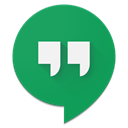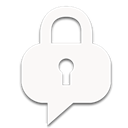Top QuickMSG Alternatives: Secure Messaging Beyond Email
QuickMSG stands out as a unique secure messaging solution, leveraging the existing SMTP/IMAP email infrastructure and strong PGP encryption to offer end-to-end secure communication without a central server. Its focus on email addresses instead of phone numbers provides flexibility across devices. However, as with any specialized software, users may seek QuickMSG alternatives that offer different features, broader platform support, or a more familiar user experience. This article explores some of the best alternatives for those looking to diversify their secure messaging toolkit.
Best QuickMSG Alternatives
While QuickMSG offers a robust, privacy-centric approach to messaging, the digital landscape is rich with other powerful communication tools. Whether you prioritize speed, specific features, or a particular user interface, there's a QuickMSG alternative out there for you. Here's a look at some leading contenders:

Telegram
Telegram is a highly popular messaging app known for its speed, security, and extensive features, making it a compelling QuickMSG alternative. It's available across a vast array of platforms including Free, Mac, Windows, Linux, Web, Windows Mobile, Android, iPhone, and more. While not open-source in its entirety (client-side is open, server-side is not), it offers robust End-to-End Encryption in 'Secret Chats' and boasts features like cloud sync, large file transfer, channels, bots, and group chats. Its focus on speed and feature richness makes it a strong contender for those who prioritize a comprehensive messaging experience.

Signal
Signal is widely regarded as one of the most secure and privacy-focused messaging QuickMSG alternatives available. It is free and open-source, available on Mac, Windows, Linux, Android, and iPhone. Signal provides End-to-End Encryption for all communications by default, including messages, voice calls, and video calls. Key features include self-destructing messages, privacy-friendly design, security-focused development, and no ads. For users prioritizing uncompromising security and open-source transparency, Signal is an excellent choice.

WhatsApp is a ubiquitous messaging and calling app known for its simplicity and widespread adoption, making it a functional QuickMSG alternative for many. It's free and available on Mac, Windows, Linux, Web, Android, and iPhone. WhatsApp offers End-to-End Encryption for all messages and calls by default. Features include group chat, integrated file sharing, video calling, and voice chat. While not open-source and part of the Meta ecosystem, its ease of use and massive user base make it a practical choice for connecting with a broad audience.

Hangouts
Hangouts, a communication platform developed by Google, allows users to send messages, photos, and conduct video and voice calls. It's a free QuickMSG alternative available on Windows, Web, Android, iPhone, and Chrome OS. While its future is evolving within Google's communication strategy (with a shift towards Google Chat), it historically offered features like video calling, screen sharing, Gmail integration, and multi-device support, making it suitable for those integrated into the Google ecosystem.

Viber
Viber is a freemium mobile application that enables free phone calls and text messages to other Viber users, serving as another QuickMSG alternative. It's available on Mac, Windows, Linux, Android, iPhone, and more. Key features include group chat, video calling, voice calls, secret chats, and animated stickers. While not open-source, Viber offers end-to-end encryption for one-on-one and group chats, providing a secure communication option with a rich set of features.

Zulip
Zulip is an open-source group chat app that organizes conversations by topic, making it ideal for team collaboration and an interesting QuickMSG alternative for organized communication. It offers both free personal and paid versions, available on Mac, Windows, Linux, Web, Android, and iPhone, with self-hosting options. Its standout feature is 'threaded conversations,' which helps manage long-running discussions. Other features include integrated file sharing, Markdown support, and GitHub integration, catering to users who need a highly structured communication environment.

Facebook Messenger
Facebook Messenger offers a fast and convenient way to message friends within the Facebook ecosystem, serving as a widely used QuickMSG alternative for social connections. It's free and available on Windows, Web, Android, iPhone, and more. Features include group chat, video calling, voice calls, and even in-app money transfer. While not primarily focused on the same level of independent, PGP-based security as QuickMSG, its pervasive use makes it a go-to for casual communication and integrated social interactions.

Conversations
Conversations is a privacy-focused, open-source XMPP (Jabber) client for Android, making it a strong QuickMSG alternative for those seeking decentralized and encrypted communication. It offers robust End-to-End Encryption using OTR, OMEMO, or GPG, aligning with QuickMSG's security principles. Features include picture sharing, group chat, and a focus on intuitive encryption. Being open-source and decentralized, it provides a high degree of transparency and control over your messaging experience.

ChatSecure
ChatSecure is a free and open-source messaging app for iPhone and iPad that features OTR encryption over XMPP, positioning it as a secure QuickMSG alternative for iOS users. It offers encrypted chat and integrated file sharing. Its commitment to open standards and strong encryption makes it a reliable choice for privacy-conscious individuals, especially those already familiar with or seeking XMPP-based solutions.

WeChat is a comprehensive social media and VOIP service by Tencent, offering a vast array of features that extend beyond simple messaging, making it a feature-rich QuickMSG alternative. Available on Freemium, Mac, Windows, Android, iPhone, and more, it provides free video and voice calls, group chat, in-app money transfer, and photo sharing. While its encryption and privacy practices differ from QuickMSG's PGP-based approach, its extensive functionality and widespread use in certain regions make it a dominant communication platform.
The world of secure messaging is diverse, offering a range of solutions to meet varied needs. While QuickMSG provides a unique and robust approach leveraging email infrastructure and PGP, these QuickMSG alternatives offer their own strengths in terms of features, user base, platform availability, and security models. We encourage you to explore these options and choose the best fit for your specific communication requirements and privacy preferences.